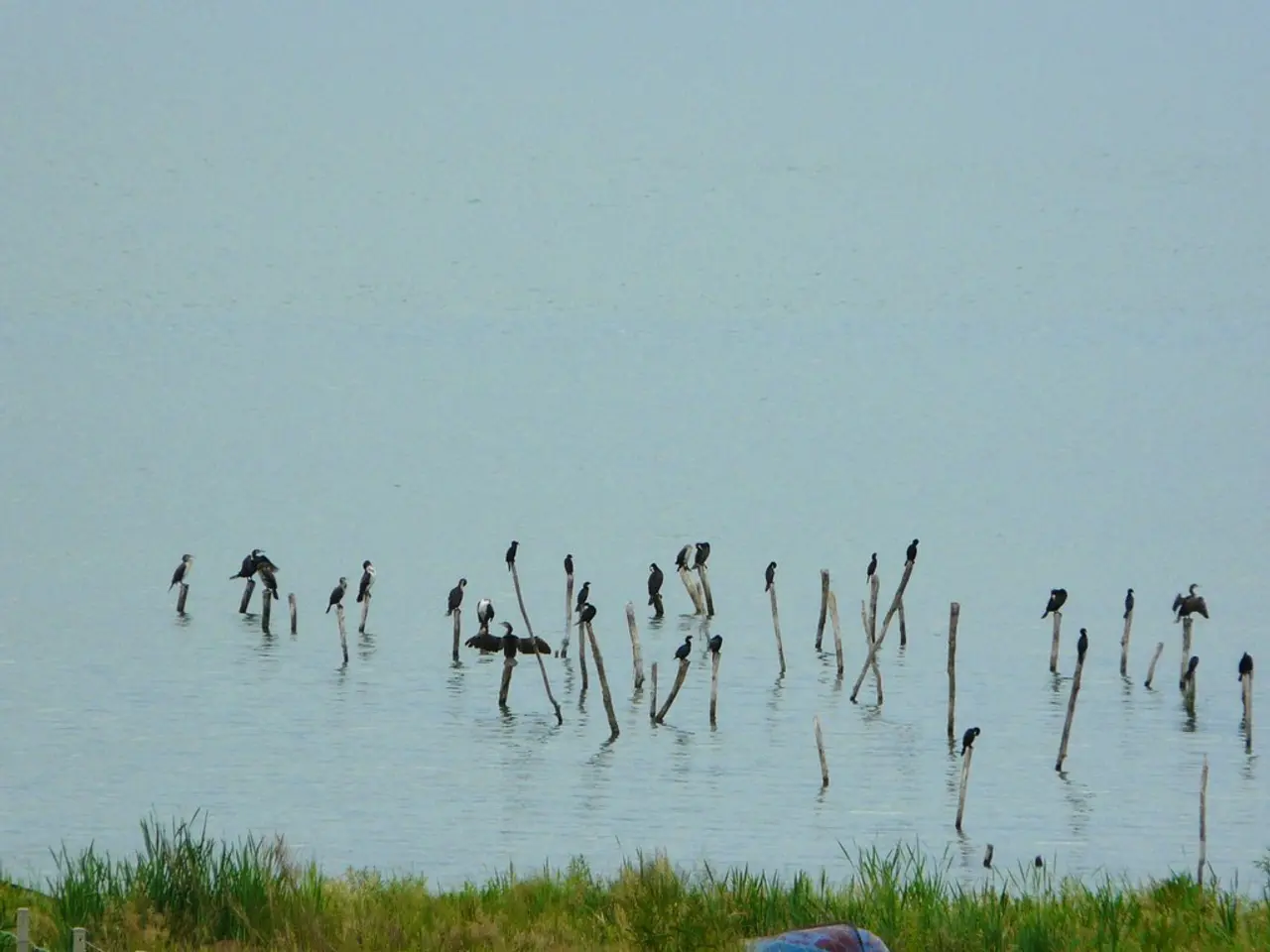Restoring Avian Populations and Enhancing Species Diversity at Chia Lagoon
In the heart of Malawi, the Chia Lagoon has seen a remarkable transformation, thanks to sustainable hunting initiatives led by local communities and conservation organisations.
For many years, Maulidi, a resident of Chimpini Village, relied on bird hunting at Chia Lagoon for food, school fees, fertilizer, and other agricultural inputs. He could make approximately MK120,000 (US$60) from bird hunting. However, a decline in the number of birds at the lagoon affected his livelihood and that of his dependents.
Recognising the need for change, Maulidi, along with members of the Chimpini Hunting Club, initiated a sustainable hunting initiative to conserve waterbirds and restore habitats around Chia Lagoon. This shift from unsustainable hunting to conservation has opened alternative livelihood opportunities.
Today, Maulidi and other former bird hunters are tour guides for bird enthusiasts, leading them through the lush wetland teeming with life. They are also involved in making agro-waste briquettes for cooking, helping conserve forests and reducing deforestation. This switch to sustainable and eco-friendly practices is crucial, as most Malawians rely heavily on wood for cooking and heating.
The sustainable hunting initiative has also led to the establishment of 15 bird sanctuaries within the wetland. These sanctuaries provide safe breeding and feeding habitats for various waterbird species, contributing to the restoration and conservation of vulnerable and endangered birds such as Herons, Little Egrets, Common Ringed Plovers, African Comb Ducks, and Eagles.
Moreover, the Wildlife and Environmental Society of Malawi (WESM) is partnering with the Chimpini Hunting Club to teach sustainable bird hunting management, avitourism, monitoring, and documentation of bird species populations. This collaboration aims to empower communities around Chia Lagoon with the knowledge and skills needed to manage their resources sustainably.
One such individual is Shabani Mtila, another member of the Bird Hunters, who has been trained on sustainable livelihood alternatives like bird watching and smart agriculture. Mtila and 179 other hunters have been trained on how to identify and record bird species as part of capacity building to the communities around Chia Lagoon.
Chifundo Dalireni, an environmentalist, emphasises the importance of everyone taking care of Chia Lagoon's biodiversity to achieve Sustainable Development Goals 11, 12, 13, 14, and 15. He encourages people not to dump thin plastics in Chia Lagoon, as it endangers fish and bird species and disturbs the lagoon's biodiversity.
Blessings Chinagwe, WESM Programmes Manager, is impressed by the Chimpini Club's commitment to environmental conservation and sees the partnership as an opportunity to combine conservation and community livelihoods. He believes that this integrated approach is key to ensuring the long-term sustainability of Chia Lagoon and the wellbeing of its people.
With the implementation of these sustainable hunting initiatives, Chia Lagoon continues to thrive, not only as a haven for birds but also as a source of livelihood for the local communities. Bird watching in Chia Lagoon is possible throughout the year, with the best time being during the wet season (November to April) when migratory birds are present.
[1] Reference: TBA (To Be Announced)
Bird watching in Chia Lagoon, Malawi, is a rewarding experience that supports both the conservation of vulnerable bird species and the livelihoods of local communities. By choosing to visit this unique wetland, you are contributing to the continued restoration and protection of its biodiversity. So, pack your binoculars and join us on a journey through the vibrant world of Chia Lagoon.
- The shift towards sustainable hunting practices in Chia Lagoon, Malawi, has extended beyond conservation to include environmental science, as the Wildlife and Environmental Society of Malawi (WESM) collaborates with local hunting clubs to teach sustainable bird hunting management and avitourism.
- In the realm of sustainable living, Maulidi and other former bird hunters in Chia Lagoon have transitioned from their previous lifestyle to become tour guides, leading bird enthusiasts through the lagoon, and agro-waste briquette makers, thereby reducing deforestation and promoting a more eco-friendly home-and-garden practices.
- Recognizing the erosive impact of littering, Chifundo Dalireni, an environmentalist, emphasizes the significance of keeping Chia Lagoon clean, not only to protect its biodiversity but also to contribute to the achievement of Sustainable Development Goals 11, 12, 13, 14, and 15, pertaining to sustainable cities and communities, responsible consumption and production, climate action, life below water, and life on land, respectively.




